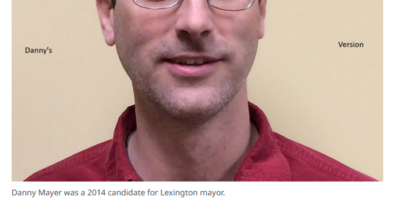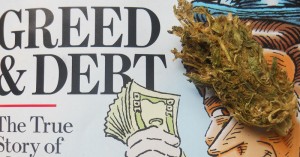The imperfect enjoyment
By Marcus Flores
Newly engineered chemical compounds offer a study of Isaac Newton’s Third Law: for every action there is an equal and opposite reaction. For example, the government’s misplaced mania for prohibiting a certain plant provokes an equal and opposite response from citizens looking to get legally high. Meant to mimic marijuana, herbal smoking products “K2” and “Spice” have caused deadly side effects among Kentucky teens—among them heart attacks and seizures.
Synthetic drugs officially became an issue following Rudy Eugene’s gruesome attack on a vagrant. Thought to have been high on bath salts, he consumed the fellow Floridian’s face and was shot dead. Post-mortem analysis revealed only the presence of marijuana in Eugene’s system, potentially injuring the herb’s innocuous reputation. Florida toxicology expert Dr. Bruce Goldberger noted that the menu of synthetic drugs is ever expanding, forcing associated laws and detection methods to play catch up. In short, Eugene might still have been high on bath salts; absence of evidence is not evidence of absence.
Add synthetic drugs to overcrowded prisons, and you’ve got motivation for Kentucky legislators to reconsider, in minor ways at least, drug laws. When the Florida attack occurred, Kentucky had already taken preemptive Whack-a-Mole legislative measures in its banning of those once-legal synthetics which are actually more dangerous than cannabis, their illegal counterpart. Smokers of the famous herb owe a debt to overcrowded prisons and Governor Steve Beshear—the unlikely parties behind HB 463. This politically acceptable dose of common sense nuanced possession penalties by reducing them to a Class B misdemeanor.
Fiscal and common sense almost never accord with politics, though it might just be the case here. Citing reduced incarceration costs, HB 463 may save the state well over $400 million in the next decade. Yet Kentucky legislators only sway so much. Their roots firmly fastened to the dark red ground, they will probably kill the Gatewood Galbraith Medical Marijuana Act, a hefty bill shouldered by the State Senator Perry Clark. Presently teeming with prescription opioid abuse, Kentucky simply cannot bring itself to consider cannabis.
To defeat this stigma attached to cannabis is to contend with the inertia of many repeated falsehoods that have adopted a convincing mantle of truth. Since grade school American children have mindlessly parroted back to their educators that marijuana impairs memory, causes psychiatric illness, and acts as a “gateway drug” (nevermind that it’s a user, not a drug, that lays its hand on the gate). This instruction is fitting (even necessary?) for a country so averse to moderation that several citizens set out to sue fast food companies on the grounds that McDonald’s, not poor decision making, was responsible for their obesity.
As far as other drugs, cannabis compares to alcohol about like side salads to Big Macs. The drug’s relative harmlessness is probably as much a remarkable coincidence as it is a product of nature’s blind but brilliant toiling. (Consumption guarantees the dispersal of seeds, and the plant rewards the favor with its celebrated effects.) It lulls one into a mellow mood, arouses the gut, may prevent Alzheimer’s Disease, alleviates glaucoma, and palliates various cancers. These studies are well known and a simple Google search will turn up several others. Although prohibition precludes much research, figures exist to confirm that of all the cannabis available to Americans (perhaps 24,000,000 pounds), none of it has produced a death from overdose. Alcohol and aspirin, on the other hand…
As anyone knows, stigma begets either abhorrence or curiosity, the latter famous for having killed the cat. Motivated by those curious but not bold enough to try actual cannabis, various companies began to market the barely legal herbs that led to the present epidemic. Melanie Haiken of Forbes notes that “Unlike weed, which in general causes relaxation and positive feelings, Spice causes hallucinations, seizures, heart palpitations, and psychotic episodes.” The stuff has caused murders in Indiana, suicides in Iowa, and tremors in Kentucky. Think of them as the collateral damage of a drug policy whose wastefulness is matched only by its futility.
Yet, on marches Kentucky’s imperious desire to protect citizens from themselves. Legislators toil to prevent a natural form of relaxation in a world where chronic stress kills thousands every year.





Leave a Reply